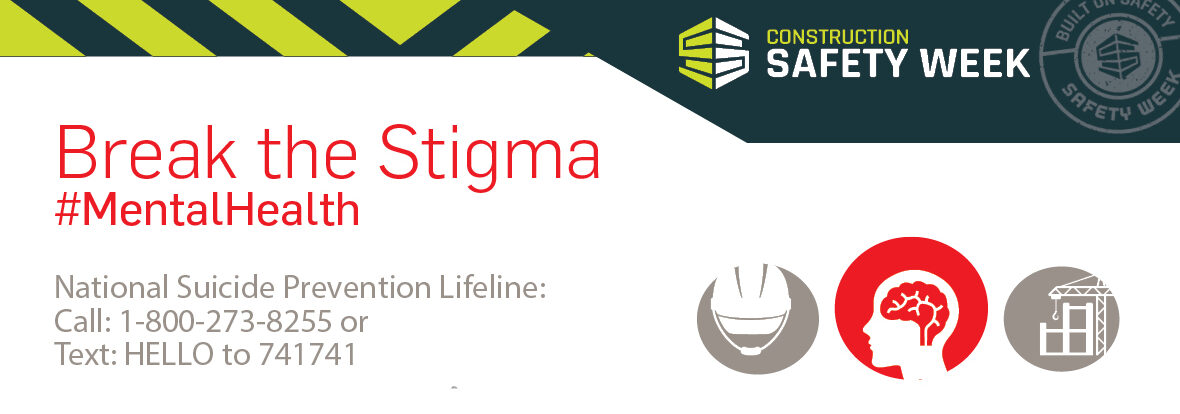In construction, we’re tough. But that doesn’t mean we’re not susceptible to struggles with our mental health. Today, for the first time as part of Construction Safety Week , we in the industry are discussing ways your team can prioritize the mental health and wellness of employees and share resources for where help can be found.
The term “mental health” comes with many connotations and can be surrounded by stigma,
especially in the construction industry. Did you know that construction and mining have the highest suicide rates of all occupations, according to data from the Centers for Disease Control and Prevention? That is why it is also important to discuss day-to-day mental health, even if it feels awkward and uncomfortable. Fortunately, our industry is becoming more aware that focusing solely on physical safety creates a blind spot in workplace safety culture. It is important to treat mental health like we do physical health.
Supporting Mental Health in the Workplace
Members of Gilbane’s empoWer Employee Resource Group (ERG), who advocate for the advancement of women within the construction industry, put together some mental health information for our Gilbane job sites to educate our project teams on reducing the stigma around mental health for Safety Week 2020. Some of their tips are below.
Six Ways to Avoid Stress and Injuries on the Job Site:
- Establish a trust network – Hearing other perspectives and gaining new understandings can help reduce or prevent stress. Share your stress management practice with others. Whether you turn to exercise, meditation or reading, sharing your practice is powerful.
- Take a break – Taking the time periodically during the day to confirm your frame of mind is important.
- Be realistic – It’s important to set honest expectations for yourself. Do not overload the time you have available.
- Adjust expectations – On construction projects, quality standards must be met. But learning to accept those levels of quality as an expectation of ‘perfection’ may be helpful.
- Be organized – Cleaning and decluttering may help reduce the stress that comes from unpredictability
- Stay positive – A positive mindset is both a mental and emotional attitude that focuses on finding the positive in every situation. Positive thinking gives you more confidence, improves your mood and reduces the likelihood of stress-related disorders.
Explore your resources
There are many resources you can leverage as you discuss and address mental health awareness in your organization. We have listed several resources to consider below. In addition, online blogs, Facebook groups, podcasts, YouTube videos, online articles and more can provide immediate tips for stress release.
- Mindfulness in 10 Minutes (Ted Talk)
- Safety Week Mental Health Video
- National Action Alliance for Suicide Prevention
- Construction industry specific information can be found here.
- Construction Industry Alliance for Suicide Prevention
- National Safety Council
Managing Stress in Uncertain Times
The current COVID-19 pandemic has impacted our lives in ways we never expected creating uncertainty and stress in our day-to-day activities. Many of us have been working from home and not getting out much for many weeks now or you may be going to a jobsite but are having to work differently with fear of potential exposure. These changes impacting our basic needs and routines can cause stress in all of us.
Mental health isn’t just about mental illnesses, it is also about maintaining a positive state of well-being. Having good mental health prepares us for the challenges that come with daily life. Challenges may include the loss of a loved one, financial hardship, struggling with relationships of family/friends, and difficulties at a place of work. The timing of these hardships is never ideal and often come when we are already experiencing challenges. It is very important to evaluate your mental health daily and recognize the warning signs.
Gilbane’s safety culture is one where we look after one another. So check in with your teammates. Let them know you care for their well-being. Take the time to listen.
If you or someone you know may be considering suicide, contact the National Suicide Prevention Lifeline at 1-800-273-8255 (En Español: 1-888-628-9454; Deaf and Hard of Hearing: 1-800-799-4889) or text HELLO to the Crisis Text Line at 741741.

